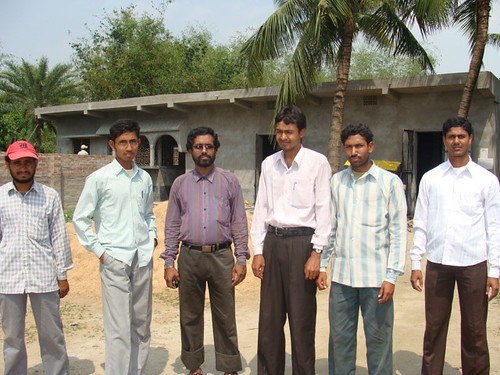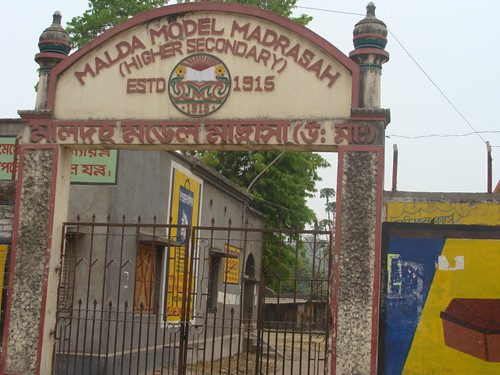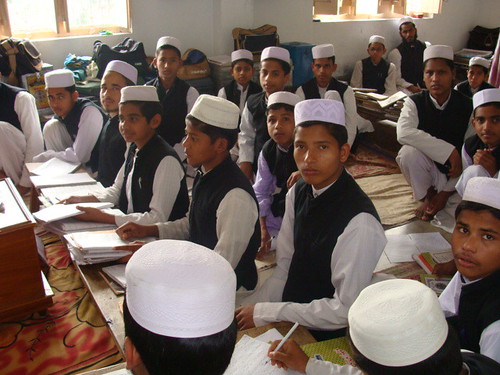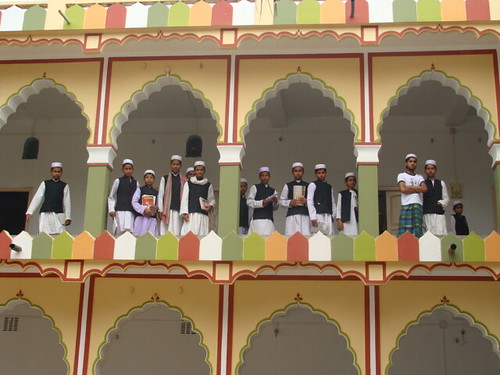By Mumtaz Alam Falahi, TwoCircles.net
TCN series: visit to Malda and Murshidabad: Part 5
Imam Hussain in Murshidabad is doing Masters in English. Rafeequl Islam, another youth in the district, is doing Diploma in Mechanical Engineering. In Malda, while Muhammad Arafat has got enrolled in B.Ed. after doing B.A. in history, his friends Sirajul Islam, Ghulamur Rahman and Ansar Ali, all in teens, are in Class XI wherein along with other subjects they are studying Arabic language also as they want to do honors in the same subject.
The new generation of the Muslim community in these two Muslim-dominated districts has got to know the importance of education. “People are thinking that without education their lot cannot be improved. Today in schools and colleges, most Muslim students are first generation learners. This shows the current thinking of the community,” says Dr Mujeebur Rahman, ex-Principal, Ziaganj College, Murshidabad.

However, the present educational condition in the two districts is not good. The literacy rate in Murshidabad whose 63.67% population is Muslim, is just 55.05% while Malda’s case is worse with the district consisting 49.72% Muslim population has only 40.97% literate people. “Current educational condition is not satisfactory. In ratio to population, number of primary schools here is very low compared to the nation and other districts in West Bengal,” says Dr Mujeebur Rahman adding the dropout rate gets increasing as students cross primary level.
Ghulam Kibriya Sarkar, 27-year-old mechanical engineer who is currently teaching at a polytechnic in Murshidabad, says: Education level is low as people have no money to send their children to schools. There is also lack of awareness about education. After a few years at schools they send them to field to work.”

Ghulam Kibriya Sarkar
“We are convincing people to send their children to school. We are running some educational awareness programs. We are telling them that relief materials will not help them long. They should educate their children. We have formed an NGO Universal Unique Trust for that purpose,” he says.
Dr Mujeebur Rahman admits: “Of late there has been some change in thinking of people.” People have come to know the importance of education, and they are now sending their children to schools and madrasas. Besides government run mainstream educational institutions, there are also madrasas aided by the government and some run by individuals or trusts wherein Muslim students study.
This is Malda Model High Madrasa in Malda town area. In this madrasa (that runs classes V-XII) there are 650 students. Up to class X there is no non-Muslim student as Arabic language as a subject is compulsory in these classes. In Class XI and XII Arabic is not compulsory; so non-Muslim students also seek admission.

“There are three types of madrasas run by the state government in West Bengal –High Madrasa, Senior Madrasa and Junior Madrasa. In Malda there 69 such madrasas,” says Mustafa Kamal, Asst. Principal of this madrasa.
Regarding subjects in Class V-X, Mustafa Kamal says: We follow the syllabus of West Bengal Madrasa Board. We teach three languages, Bengali, English and Arabic as well as Political Science, Maths, Life Science, History, Geography and Computer. In class XI and XII we follow the syllabus of West Bengal Council of Higher Secondary Education.
The Malda Model Madrasa, which is a government aided minority institution, also runs some vocational courses like cell phone repairing.
After Intermediate where do students go from madrasas? “Because of Arabic language being compulsory in classes from V-X, a lot of students study the language in higher classes also. Many of them do honors in Arabic from some colleges in Malda or Maulana Azad College in Kolkata,” says Mustafa Kamal who himself is M.Sc. and B.Ed.
Besides government aided madrasas, there are some private madrasas also in the two districts. In Malda’s Pandua area there is a big private madrasa called Al-Jameatul Jalalia Al-Alaiya Al-Ashrafia. It is run by a charitable society Makhdoom Ashraf Mission.
There are 465 students in the madrasa and all get free education, food and lodging. “This is a fully charitable society. Students get education, food and lodging free of cost. We run the madrasa with donations we get from public, says Muhammad Jirgis, joint secretary of the Mission.


Students here study Arabic language, Islamic studies and Maths and English as compulsory subjects. Established by saint Mustafa Ashraf Jilani in 1994, the madrasa has attracted learners from Malda, Kolkata, Jalpaiguri, Darjeeling, Patna and Saharsa also.
The computers have been financed by Bengal government while the computer course is being funded by National Council for Promotion of Urdu Language (NCPUL), a central government body.
Over some years, several private schools and educational missions have also come up in these two districts. Mostly run by Muslim individuals or societies they offer quality education at a price.
“It is an irony that missions are running outside Murshidabad but they have been sponsored and financed by two industrial houses of Murshidabad – Potaka Industry and Howrah Bidi. They are funding Al-Ameen Mission, Al-Hilal Mission and several other missions. They are mostly in Howrah, Hoogly, 24 Parganas and other parts of the state. Of late, they have taken interest in Murshidabad. They have opened branches here and started activities,” says Dr Mujeebur Rahman.
Al-Ameen Mission also runs a hostel with 50 students from science stream in the premises of Malda Model Madrasa. The mission prepares the students for Intermediate.
In Behrampur, district headquarters of Murshidabad, there is Guidance coaching centre. Run by Guidance Foundation of Kolkata, the coaching centre in Behrampur prepares students for entrance tests for engineering and medical courses. “Guidance, which prepares students for WBJEE/AIEEE/AIPMT, has 150 Muslim students and 15 others. Of Muslims, there 10 are girls,” says Muhammad Hasanullah, coordinator of the coaching centre. He further says that the Union Ministry of Minority Affairs is providing funds to the coaching centre for free coaching to 400 candidates belonging to the minority communities” for high level entrance tests like WBJEE/AIEEE/AIPMT.

